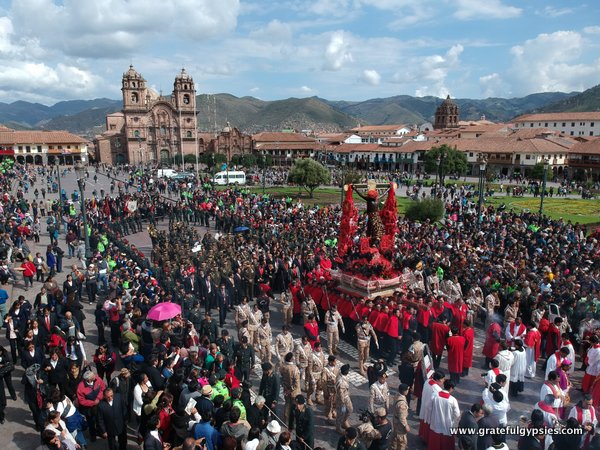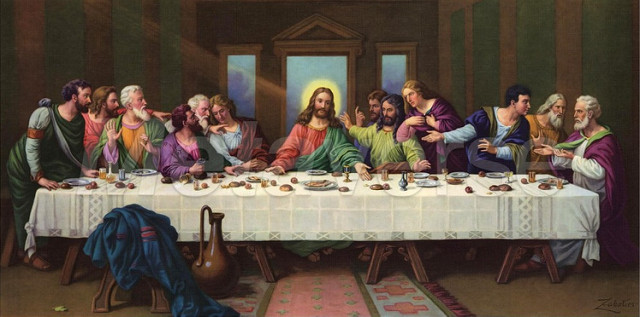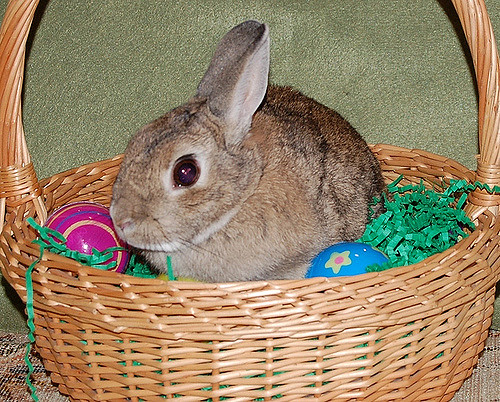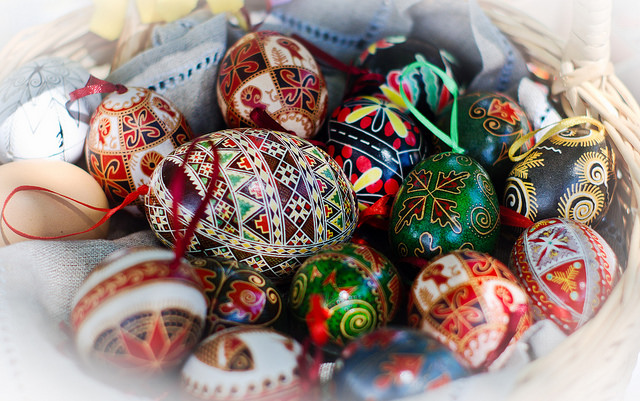An English Learner’s Guide to Easter Posted by sasha on Mar 28, 2018 in Culture
This Sunday, Christians all over the world will be celebrating Easter. There are several other important days leading up to Easter, such as Ash Wednesday and Good Friday. There are also plenty of unique customs and traditions associated with Easter that have nothing to do with Christianity. Let’s learn more about this important holiday in an English learner’s guide to Easter.
What is Easter?
Easter is one of the most important holidays for Christians. This day celebrates the resurrection of Jesus. According to the New Testament, this occurred three days after his crucifixion by the Romans. Unlike Christmas – which is always celebrated on December 25th – Easter is known as a moveable feast. This means that the holiday occurs on a different day each year. It always happens between March 22nd and April 25th, and always falls on a Sunday. Before we get to Easter Sunday, though, there are several other important days.
Ash Wednesday
The lead-up to Easter begins with Ash Wednesday. This is a day of prayer, fasting, and repentance. On this day, people will visit a church to place ashes on their foreheads in the shape of a cross. Typically, the placing of the ashes will be accompanied by the words “Remember that you are dust, and to dust you shall return.” The ash is a reminder that Jesus died and that everyone will become ash in the end. This day occurs seven weeks before Easter, and it is also the start of the period known as Lent.
Lent
Lent is a period of 40 days leading up to Easter that starts on Ash Wednesday. If you look at the calendar and count the days, you may realize that it’s actually more than 40. That’s because you don’t count the Sundays during Lent. For Christians, Lent is a time to prepare for Easter and remember what Jesus went through during the 40 days he was in the desert being tempted by the Devil. During this time, he did not eat or drink. As such, many people will participate in some kind of fasting during Lent. That’s not to say that people won’t eat or drink at all, of course. Most will choose to give something up for Lent, such as meat, alcohol, or sweets.
Holy Week
Palm Sunday
The week before Easter is known as Holy Week. It begins with Palm Sunday, which commemorates Jesus’ return to Jerusalem. As he rode into Jerusalem, crowds of people scattered palm branches in front of him. That’s where the name comes from, and that’s why you’ll see people carrying palms to church on this day.
Maundy Thursday
This day commemorates the Last Supper, the final meal that Jesus shared with his Apostles before his crucifixion. It’s said that during this meal, Jesus predicted the events that would soon happen, including his betrayal, death, and resurrection. The Last Supper is a very famous scene. Chances are you’ve seen it depicted in paintings before. In case you were wondering, the word “Maundy” comes from the Latin mandatum, which means “commandment.” On this day, Jesus washed the feet of his disciples and gave them a commandment to love each other as he had loved them. This is why religious services on this night often include the washing of feet.
Good Friday
Good Friday is a very important day for Christians. This day remembers the crucifixion of Jesus and his death as a result. When people were crucified, they were tied to a cross and then nailed to it through their feet and hands. This is why the cross is a symbol of Christianity. If you’re wondering why such a solemn day is called “Good,” that’s because “Good” meant “Holy” in Old English. As such, you can also refer to this day as Holy Friday. There are parades all over the world to commemorate Good Friday.
Easter Sunday
Finally, we arrive at Easter Sunday. This is the most important day of the year for Christians, as it celebrates the day when Jesus rose from the dead. Many people will go to church at midnight for a special Easter service. There are many candles used in this service, as they serve as a reminder that Jesus is the light of the world. In some countries, they even use fireworks to ring in Easter Sunday! There are also many flowers used in Easter services to symbolize new life. All over the world, there are different celebrations on Easter Sunday. One such celebration is the annual parade in New York City:
While we have discussed the religious significance of Easter, there are many other secular traditions that go along with this holiday.
Secular Traditions
Easter Bunny
For many people, Easter is associated with the Easter Bunny. Much like Santa Claus is to Christmas, this is a secular symbol of the holiday. The reason why rabbits go along with Easter is because they are associated with spring and fertility. It’s also said that the yolk in the egg represents Jesus coming out of the tomb. In the past, children were told that Easter rabbits would lay eggs for them to find on Easter Sunday. This brings us to the next custom…
Easter Eggs
There are many Easter traditions related to eggs. This goes back to Medieval Europe, when eggs were forbidden to be eaten during Lent. As such, eggs were boiled and preserved during this time. When Easter finally arrived, there were plenty of eggs! These days, people like to paint Easter eggs, play an egg-rolling game, or go on an Easter egg hunt. This is when eggs are hidden and children go out to find them with their Easter baskets. There’s even a big Easter Egg Roll celebration at the White House:
Easter Baskets
On the night before Easter, many children will leave Easter baskets out in hopes that the Easter Bunny will fill them with treats. It’s a bit like leaving a stocking on the wall for Santa Claus on Christmas Eve. Typically, they wake to find things like chocolate eggs and candies like Marshmallow Peeps.
As you can see, there’s a lot going on when it comes to celebrating Easter! Do people celebrate Easter where you’re from? What are some Easter traditions there? We’d love the hear from you! Leave a comment below and let us know.

Build vocabulary, practice pronunciation, and more with Transparent Language Online. Available anytime, anywhere, on any device.








